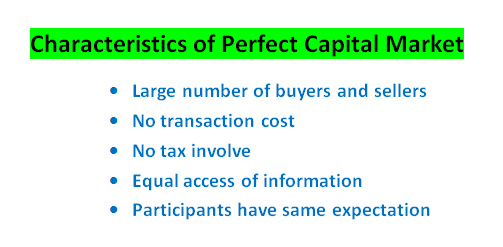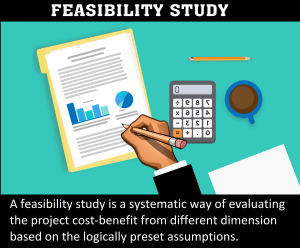What is meant by a perfect capital market?
If a capital market has the following characteristics then it would be considered as a perfect capital market. In perfect capital market case, assuming complete markets, perfect rationality of agents and under full information, the equilibrium occurs where the interest rates clear the market, with the supply of funds equal to the demand.
- There is no transaction (brokerage) cost.
- There are no taxes.
- There are large numbers of buyers and sellers, so the actions of no one buyer or seller affect the price of the traded security.
- Both individuals and firms have equal access to the market.
- There is no cost to obtain information, so everyone has the same information.
- Everyone has the same (homogeneous) expectations.
- There are no costs associated with financial distress.
What role does the perfect capital market assumption play in financial theory?
 Roles of perfect capital market assumption
Roles of perfect capital market assumption
Clearly, most of these assumptions do not hold in the real world-taxes and brokerage costs exist, individuals often do not have the same access to markets as corporations, managers often have more information about their firms’ prospects than do outside investors and so on. Still, a theory should not be judged on the reality of its assumption, but rather on how consistent its predictions are with actual behavior. If a theory seems reasonable and is consistent with behavior, then the theory will generally be accepted, regardless of the realism of its assumption. Often the assumptions do not limit the ability of the theory to explain real-world phenomena.
For example, although taxes certainly exist, there may be enough tax-exempt institutions with sufficient capital to produce the results predicted by a theory that assumes zero taxes.
If you have any query about the perfect capital market then please let me know. I will try my best to share my knowledge of the perfect capital market.
Written by


Does Risk management create value in perfect capital market.